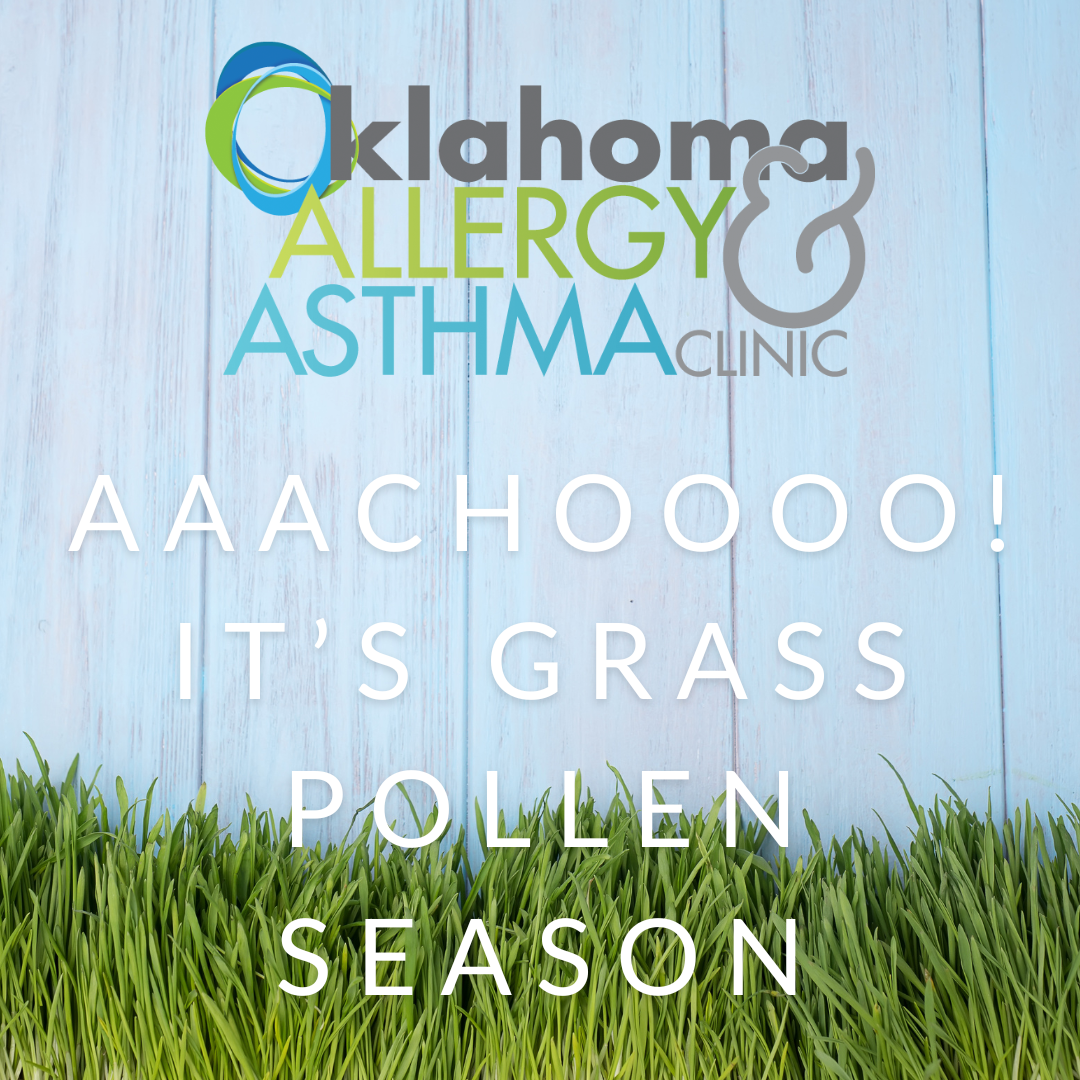
If the smells of freshly cut lawns make you sneeze, you may have a grass pollen allergy. Grass pollen is a common cause of allergy. Every spring and summer, plants release tiny pollen grains to fertilize same species plants. Grass pollen can trigger allergic reactions.
If you are experiencing these symptoms, grass pollen may be the trigger:
- Runny nose
- Sneezing
- Itchy nose, eyes, ears and mouth
- Stuffy nose (nasal congestion)
- Red and watery eyes
- Swelling round the eyes
Since grass pollen grains may not be visible to the eye, your body may react even to tiny amounts of pollen in the air. With Oklahoma’s strong winds, pollen is distributed across the state.
Also known as hay fever, allergists refer to pollen allergy as seasonal allergic rhinitis.
What grasses cause allergy symptoms?
Fortunately, only a few grasses cause allergic symptoms. Where you live also plays a factor in grass allergy.
The most common grasses causing allergies are:
- Bermuda
- Johnson
- Kentucky
- Orchard
- Rye
- Sweet Vernal
- Timothy
Living in Oklahoma, grass can pollinate through most of the year. Tiny, light and dry – grass pollen grains can travel for hundreds of miles.
“The first step is to get tested and diagnosed,” said OAAC Allergist Dr. Bret Haymore. “Once your allergist knows what specific allergens causing your symptoms, then we can work with you to create a treatment plan.”
Options for treatment include over-the-counter medicines, liquids or nasal sprays and prescription pills (also known as antihistamines, decongestants and nasal steroids). These can help reduce or prevent grass allergy symptoms.
“Grass allergy pollen medicines work best when you start taking them before pollen season begins,” said Dr. Haymore. “This will allow the medicines to prevent your body from releasing histamine and other chemicals that cause your symptoms.”
Another option if those medicines are no longer helping, may be immunotherapy or allergy shots. There are two types of grass allergy immunotherapy – allergy shots and allergy tablets.
“Immunotherapy is a long-term course of treatment that can reduce or even prevent the severity of allergic reactions,” he said. “Allergy shots usually take a one-to-three-year commitment and can modify the body’s immune response to allergens.”
Allergy shots or subcutaneous immunotherapy (SCIT) are given at the OAAC clinics. Patients are monitored for any type of reaction to the shot. Most common side effects include local reactions at the injection site – redness, itching, swelling, tenderness, and pain. Less common reactions may include generalized redness, hives, itching, swelling, wheezing and low blood pressure.
Allergy tablets or sublingual immunotherapy (SLIT) can be done at home. This therapy involves placing a tablet containing the allergen under the tongue for one to two minutes and then swallowing it. Treatment must begin before grass allergy season and continues throughout grass allergy season. Taking the daily tablets may reduce grass allergy symptoms. There can be some side effects, and some can be serious. Please discuss with SLIT therapy with your OAAC provider about treatment options.
